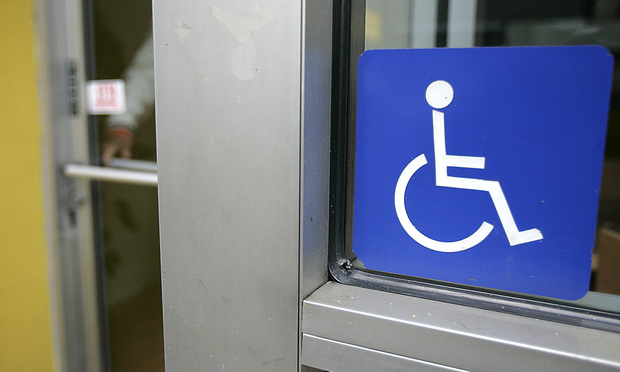Jeffrey Campolongo

December 27, 2016 | The Legal Intelligencer
Businesses Will No Longer Be Able to Ask Applicants About Prior SalaryThe city of Philadelphia may soon be delivering a Christmas present to its workers who are the victims of unequal pay. On Dec. 8, Philadelphia City Council unanimously passed the "wage equity ordinance" (Bill No. 160840, as amended Nov. 22). Mayor Jim Kenney has publicly championed his approval of the ordinance that he will eventually sign into law. Once passed, the bill will amend the Philadelphia Fair Practices ordinance and go into effect within 120 days of passage. The bill is being lauded for making it unlawful for an employer or employment agency to ask an applicant about his wage history or require disclosure of such information, including what he earns at his current employer.
By Jeffrey Campolongo
10 minute read
December 27, 2016 | The Legal Intelligencer
Businesses Will No Longer Be Able to Ask Applicants About Prior SalaryThe city of Philadelphia may soon be delivering a Christmas present to its workers who are the victims of unequal pay. On Dec. 8, Philadelphia City Council unanimously passed the "wage equity ordinance" (Bill No. 160840, as amended Nov. 22). Mayor Jim Kenney has publicly championed his approval of the ordinance that he will eventually sign into law. Once passed, the bill will amend the Philadelphia Fair Practices ordinance and go into effect within 120 days of passage. The bill is being lauded for making it unlawful for an employer or employment agency to ask an applicant about his wage history or require disclosure of such information, including what he earns at his current employer.
By JEFFREY CAMPOLONGO
10 minute read

November 22, 2016 | The Legal Intelligencer
When Is an Employee Not an Employee for Purposes of the Pa. WPCL?When is an employee not an employee for purposes of the Pennsylvania Wage Payment and Collection Law (WPCL), 43 Pa. Cons. Stat. Section 260.1? More specifically, when is the company's executive vice president, hired as a senior member of the company's management team, who is to receive $140,000 per year, plus $400 per month in ongoing expenses as a base salary, plus participation in the company's benefits package, not an employee? That was the question raised in a recent case filed in the Eastern District of Pennsylvania in Weber Miller v. Cerebain Biotech, No. 16-cv-03943 (E.D. Pa. Nov. 8).
By Jeffrey Campolongo
13 minute read

October 27, 2016 | The Legal Intelligencer
Employee Need Not Be Pregnant to Pursue Pregnancy Discrimination ClaimIt is not very often that courts have to grapple with a claimant's inclusion in a protected class. The idea of the aggrieved individual having an "immutable characteristic" is one of the hallmarks of Title VII since the Civil Rights Act was enacted in 1964. Thus, a recent case under the Pregnancy Discrimination Act (PDA), Snider v. Wolfington Body, Case No. 2:16-cv-02843 (E.D. Pa. Oct. 17, 2016), challenging an employee's eligibility for protection under the law has raised a few eyebrows.
By Jeffrey Campolongo
13 minute read

September 22, 2016 | The Legal Intelligencer
It's Not Wise to Sue Your Employee After Discrimination Charges Are FiledIn the employment law world, sometimes we get to review some truly head-scratching decisions by employers. Two recent cases settled by the Equal Employment Opportunity Commission (EEOC) provide a road map on what not to do when an employee engages in protected activity.
By Jeffrey Campolongo
11 minute read

July 21, 2016 | The Legal Intelligencer
Court Says No To Withholding Taxes on FMLA SettlementCongratulations! You have somehow managed to convince a very reticent employer and their all-powerful counsel to finally settle that difficult Family and Medical Leave Act (FMLA) case with you. The only thing left to do is to get paid, right? Guess again. Until the parties can agree on how the settlement payment should be reported to the IRS, the settlement will remain in payment purgatory. There can be a "sticking point" in these situations if a plaintiff is paid by W-2, because the defendant is obligated to deduct applicable taxes, withholdings for Social Security and Medicare and its employer tax, whereas a plaintiff paid by Form 1099-MISC is responsible for all of these taxes.
By Jeffrey Campolongo
10 minute read

June 22, 2016 | The Legal Intelligencer
High Court Weighs In on Limitations PeriodConstructive discharge claims can be some of the trickiest types of claims to pursue. They are typically fraught with issues about if and when the resignation/termination occurred. Along those same lines, it has not always been clear when the harassment or discriminatory events leading up to the discharge can trigger the commencement of the statute of limitations.
By Jeffrey Campolongo
12 minute read

May 27, 2016 | The Legal Intelligencer
EEOC Guidance on Leave as an Accommodation Answers ADA QuestionsFor those familiar with this column, it comes as no surprise that the most predominant topic over the years has been the Americans With Disabilities Act (ADA). It really has become our favorite topic to write about. In fact, our very first article in The Legal in 2009 was titled "Ushering in a New Era under the ADA Amendments Act."
By Jeffrey Campolongo And Lorrie McKinley
8 minute read

April 22, 2016 | The Legal Intelligencer
C&R Agreements May Waive Subsequent Employment Law ClaimsAs is often the case in the practice of law, the simplest of details can have the hugest impact on the outcome. Take for example, the recent case from the Eastern District of Pennsylvania of Zuber v. Boscov's, No. 15-3874 (E.D. Pa., Apr. 7, 2016). What was believed to be a rather benign settlement and release of a workers' compensation claim turned out to be a complete bar to a subsequent claim brought in federal court under the Family and Medical Leave Act (FMLA).
By Jeffrey Campolongo
11 minute read

March 25, 2016 | The Legal Intelligencer
Evaluating Employment Law Decisions of US Justice Nominee GarlandThere is a sentiment in the employment law community, particularly those who practice on the employee side, that federal courts have grown increasingly hostile to employee rights cases. The empirical data compiled over the last three decades seems to support this sentiment. Plaintiffs who bring employment discrimination claims in federal court are far less likely to prevail than plaintiffs in non-employment cases. According to a 2009 Harvard Law and Policy Review article titled "Employment Discrimination Plaintiffs in Federal Court: From Bad to Worse?" since 1979, the plaintiff win rate for employment cases (15 percent) was lower than non-employment cases (51 percent). For cases going to trial, employment discrimination plaintiffs (28.47 percent) won less often than other plaintiffs (44.94 percent). With respect to appeals, employees succeeded only 9 percent of the time, while employers won 41 percent of appeals.
By Jeffrey Campolongo
11 minute read
Trending Stories
- 1Judge Denies Sean Combs Third Bail Bid, Citing Community Safety
- 2Republican FTC Commissioner: 'The Time for Rulemaking by the Biden-Harris FTC Is Over'
- 3NY Appellate Panel Cites Student's Disciplinary History While Sending Negligence Claim Against School District to Trial
- 4A Meta DIG and Its Nvidia Implications
- 5Deception or Coercion? California Supreme Court Grants Review in Jailhouse Confession Case
More from ALM
- Legal Speak at General Counsel Conference East 2024: Match Group's Katie Dugan & Herrick's Carol Goodman 1 minute read
- Legal Speak at General Counsel Conference East 2024: Eric Wall, Executive VP, Syllo 1 minute read
- Legal Speak at General Counsel Conference East 2024: Virginia Griffith, Director of Business Development at OutsideGC 1 minute read



